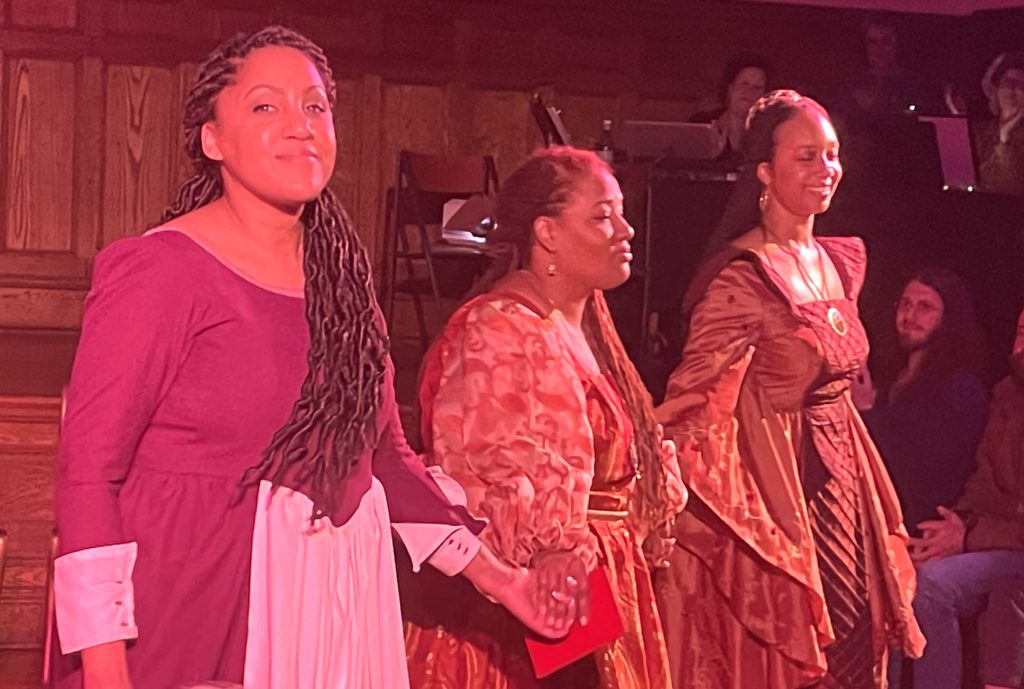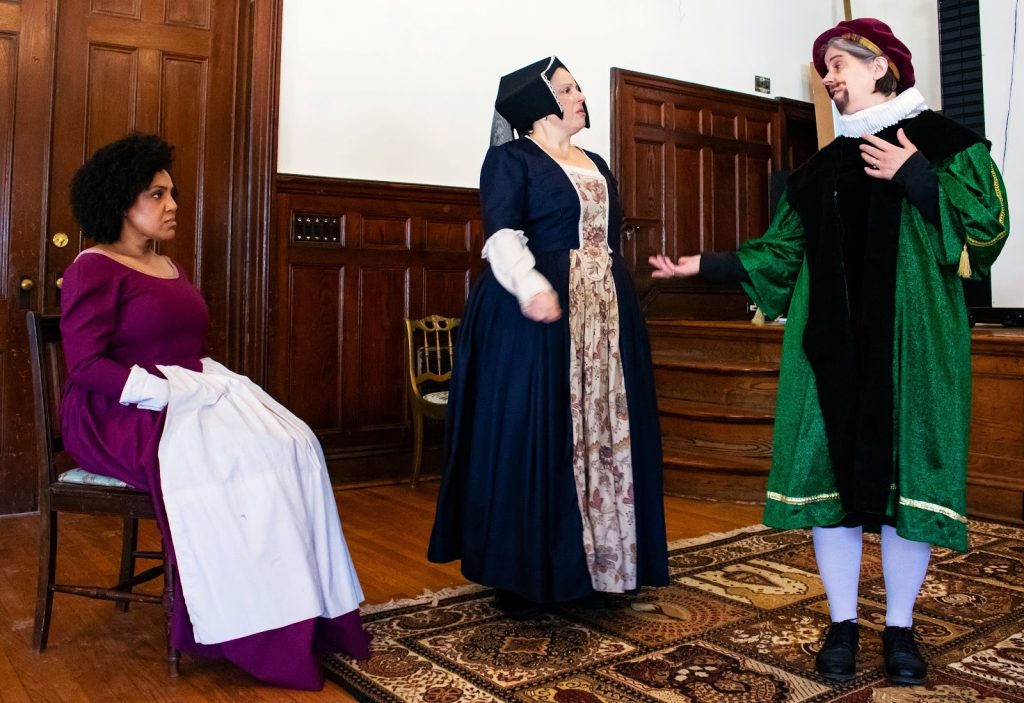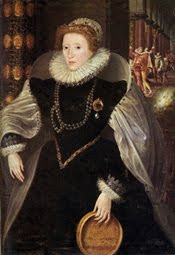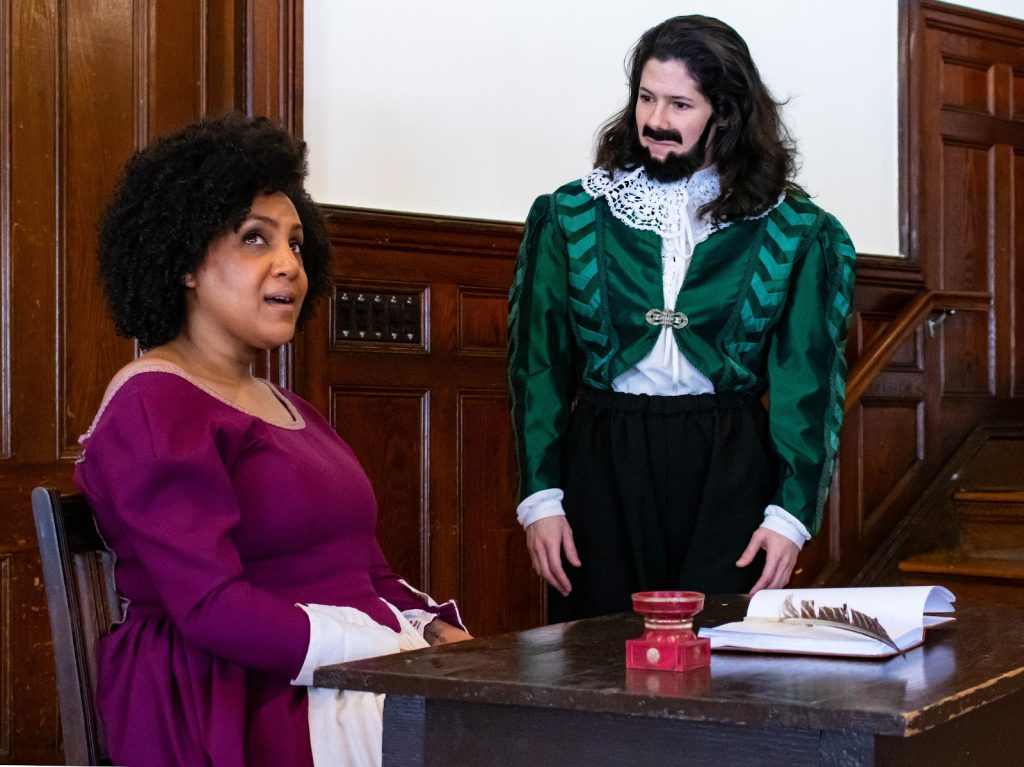
by Kevin T McEneaney
Emilia Bassano Lanier was the first English woman to publish a book of poems in England. The poems were devoutly religious and genteel, politely criticizing male sensibilities under King James’s rule. Both her poetry book and the King James translation were published in 1611. Lanier’s poem on the Garden of Eden blames Adam, not Eve. The other poems flattered the gentility of upper-class women like the Countess of Pembroke (Sir Phillip Sidney’s brother). Those poems feature attractive rhythm with ten-syllable lines. Her father was a Jewish court musician under King Henry VIII. Emilia had the ambition to rise in the ranks of the gentry, but that did not happen. She belonged to Shakespeare’s circle and may have had an affair with him, and she may have influenced some episodes in his plays (like The Merchant of Venice).
The play Emilia, written by English playwright Morgan Lloyd Malcolm and commissioned by the current Globe Theater in London, presents a feminist autobiography under the duress of being wedded to a useless, spendthrift husband. This small production is ably directed by Ellen Honig, an early “founder” of the Center for Performing Arts in Rhinebeck.

The script has an imaginative construct that presents three age periods of the heroine as acted by three different actors, a novel conceit that works quite well. Yet, the play exists in two dimensions: in the period of William Shakespeare’s life and the current strain of feminism with current dance music audio instead of period music like John Dowland, the lute musicians who provided music for Shakespeare’s plays. All the actors in the production are women who express current feminist ideals (or conversion to near-militant ideology (due to brutality) in a past era that is somewhat foggily cliché.

The three faces of Emilia are admirably performed by Chantez Engeleit, Ann Chris Warren, and LotuZ. Lauren Silverman adroitly plays Shakespeare with a script that portrays the dramatist as a mild, narcissistic, braggadocio navel-gazer, not the amusing and clever writer whose wordplays I admire. All three players were outstanding, especially Engeleit.
As the cad husband, Sir Thomas Howard, Wendy Urban-Mead was appropriately selfish, disloyal, and polite. Maggie Bogan easily shouldered three identities. Nadya Rockefeller was winsome as Lady Katherine Howard and Desdemona. An Ophelia theme pops up briefly, yet it has been proven that this theme arrived by way of a cousin of Shakespeare who committed suicide when pregnant.
Kudos to Maria Elena Maurin as Lady Margaret Clifford and Ivy Malone as Lady Ann Clifford and Lord Collins.

I did not enjoy the farcical stage combat scene which concludes the first act and I was disappointed that the final monologue was rage because I thought pity to be a more effective and dramatic ending that is historically compatible with the early 17th century under the misogynist King James. Compliments for costumes belong to Marcia Panza, and Rena Gavigan for an excellently produced program.
The theater space in Morton Library is small, while the ticket prices are reasonable. The production is good, although I found some modern themes in the script repetitive.
I recommend the play, and if you are interested in going, you may visit Rhinebeck Theatre Society online at https://www.rhinebecktheatresociety.com/
